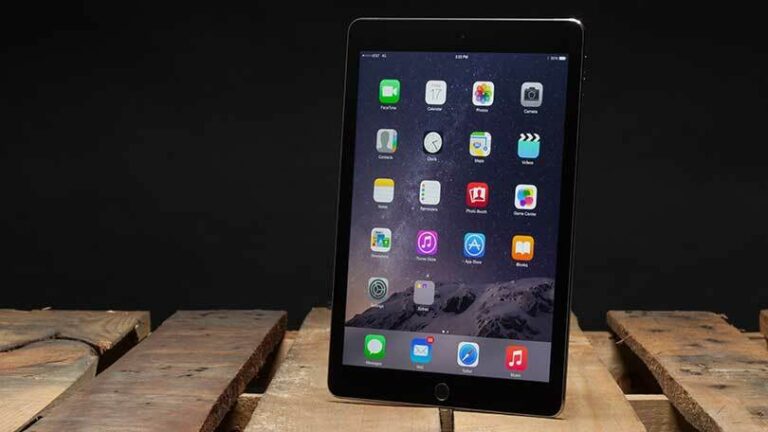
[ad_1]
When Apple announced earnings in June 2013, it disclosed that demand for iPads had declined about 15 percent over the same quarter the previous year. Since then, the demand for iPads and in fact, tablets in general, has been soft and way off their meteoric trajectory after Apple introduced the iPad in 2010.
Device makers are still on track to sell over 300 million tablets worldwide in 2014, but a large number are priced under $200, while Apple’s iPad mini 3 and iPad Air 2 ($445.00 at eBay)(Opens in a new window) are priced higher. They are aimed at premium users, and thankfully for Apple these tablets still have good margins even if unit shipments are down.
There has been a lot of conjecture as to why demand for tablets has slowed down. But from our research, it seems that people find tablets to be good for reading, Web surfing, and communications but they could never replace laptops as productivity workhorses.
This is part of the reason that demand for PCs are up slightly so far in 2014. Last year, as people were still trying to figure out if tablets could replace laptops, demand for PCs was off by 10 percent over the previous year. We are projecting that this year, PC sales will only be down around 2-3 percent as businesses and consumers look to replace aging systems.
There is another reason that iPad sales are down: Apple just makes great tablets that last much longer than the cheaper ones. There is also the potential that the iPhone 6 Plus may have an impact on demand for the iPad mini. I know that I seem to use my iPad mini a lot less now that I carry an iPhone 6 Plus ($299.00 at Verizon)(Opens in a new window) with me all of the time.
So, if demand for iPads is down, how will Apple grow the iPad business? Or is it content with the fact that iPhone 6 Plus sales are potentially cannibalizing iPad mini purchases, as long as people are buying Apple products? Demand for MacBook Air and MacBook Pro is up, for example.
I think the answer to this lies in Apple’s deal with IBM. In fact, I believe Apple anticipated a downturn in tablets and made an important deal with the computing giant in order to bolster its long-term play in tablets.
Though Apple has seen great success with iPad, it has largely been with consumers rather than the enterprise. By partnering with IBM, Apple gets access to its sales and support staff, as well as important IBM mobile tools that are needed to integrate iPads into next-generation IT programs.
While I believe Apple thinks that the iPad Air 2 will factor into this deal, I suspect that Apple has a larger iPad in the works for those who need more screen real estate. There have been rumors about a 12.9- or 13-inch iPad Pro; my sources in Asia suggest that Apple may go with a 12.9-inch version.
One tricky question about Apple bringing a 12.9-inch iPad to market is whether it will be some type of 2-in-1 like the Microsoft Surface Pro 3, ($779.00 at Amazon)(Opens in a new window) which is starting to gain attention in the enterprise. Tim Cook has dissed this concept; “You can converge a toaster and a refrigerator, but you know those things are probably not going to be pleasing to the user,” he said in 2012.
In other words, 2-in-1s have a clunky design. Interestingly, since the iPad came out there have been a lot of third-party keyboards designed for the iPad. But even for diehard iPad users who add a keyboard, it still does not replace the true productivity power one gets from a laptop.
Yet, a larger iPad with a bigger screen could become a much more serious productivity tool, even if users must rely on a third-party keyboard. Also, with Apple’s new emphasis on continuity between apps on OS X Yosemite and iOS 8.1, Microsoft offering portions of Word, Excel and, Powerpoint for free on iOS, as well as Apple’s own Pages, Numbers, and Keynote, a larger iPad could morph into a much better productivity tool than today’s iPads. Add to that IBM’s rich mobile IT tools and the ability for IT directors to create custom apps for the iPad and one could see Apple having another serious hit on its hands.
In the end, I believe Apple is highly committed to tablets of varying sizes, and while the iPhone 6 Plus could encroach on some iPad mini sales, Apple will continue to see solid demand for the iPad Air. If it does introduce a 12.9-inch iPad targeted at the enterprise and leverages IBM’s expertise, Apple could grow its tablet business again.
[ad_2]
Source link : https://www.pcmag.com/opinions/how-apple-will-grow-its-ipad-business

